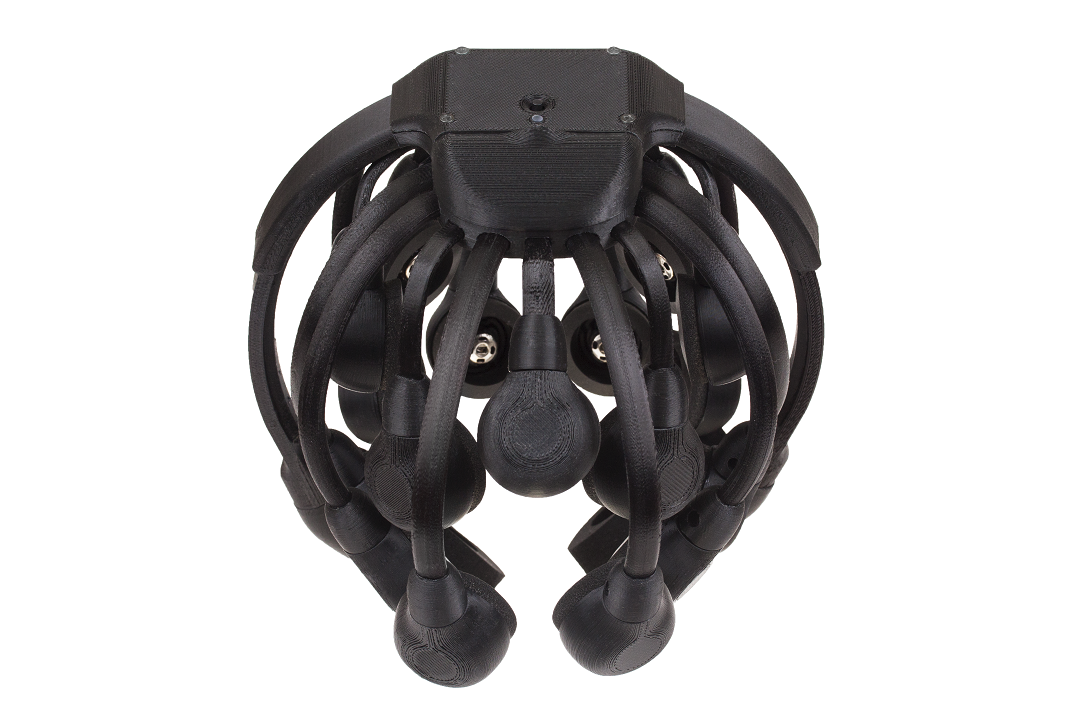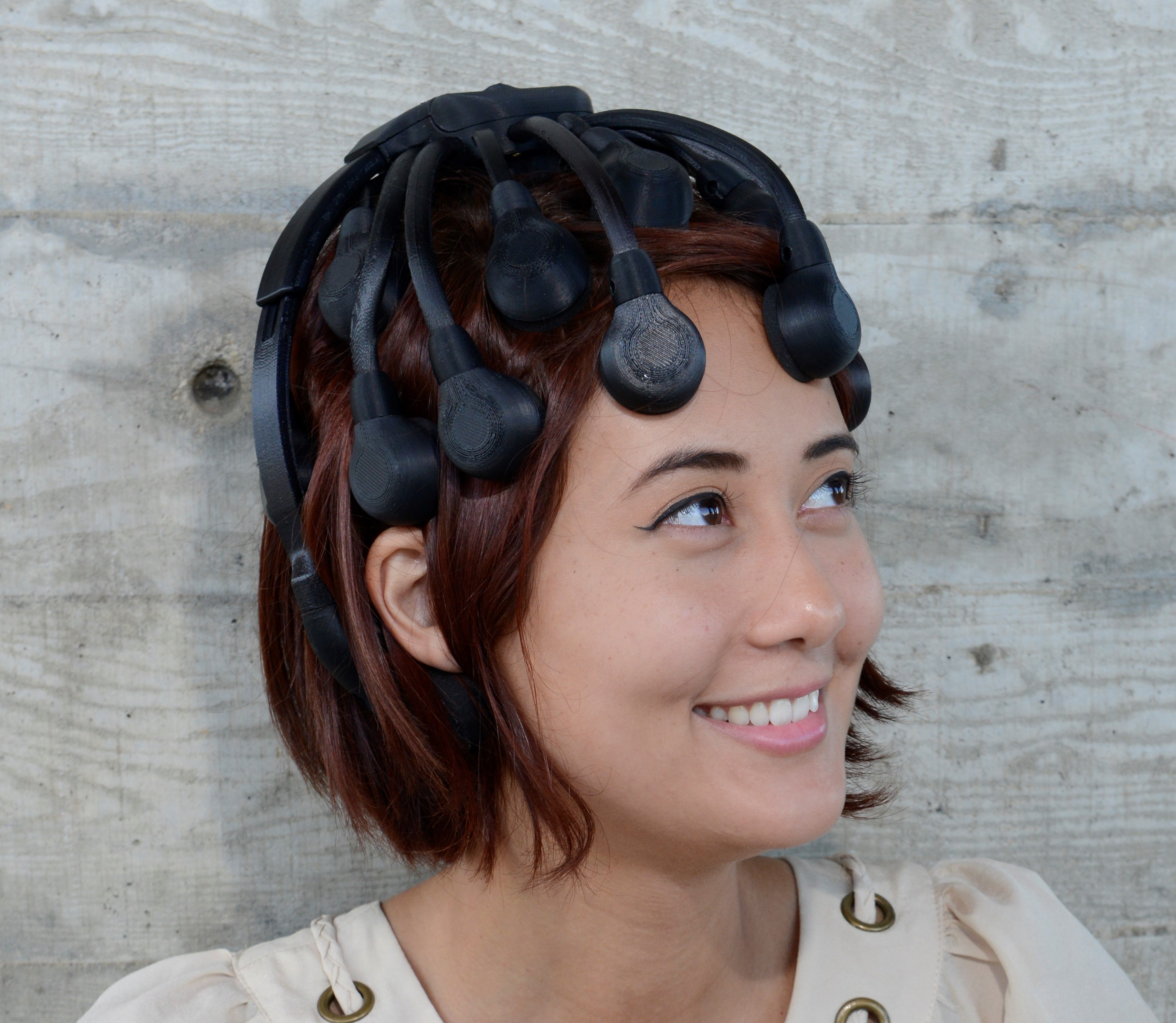Last week we caught wind of a 3D printed EEG headset made by OpenBCI with the help of LulzBot, which for those who don’t know is a wearable headset that allows users to control software and hardware via brainwaves. The project is indeed an interesting one, and helped showcase 3D printing as an ideal candidate for the proper housing choice of sensors and robotics. But Cognionics, a leading producer of non-invasive human bioelectric sensors, have taken the 3D printed EEG headset model to another exciting and unique level of function. What really sets Cognionics’ Quick-20 EEG Headset apart from other similarly 3D printed models is their use of Proto-pasta’s Conductive PLA filament, which has helped to slim down the device, while maintaining a quality testing process.
“We have experimented with just about every filament on the market. We selected Proto-pasta, and their Conductive PLA,” says Clayton McIntyre, a project engineer at Cognionics. “The reason for this is because of the Conductive PLA’s low resistivity and the fact that it is not as brittle as other conductive materials.”
By implanting dry electrodes into this 3D printed Conductive PLA, without the need of adhesives or gels, Cognionics has produced an EEG headset that is simple to set up and works efficiently for relevant experimentation. When it comes to the 3D printing process, the company claims that the technology has helped immensely with both rapid prototyping and the production of complexly shaped parts, which, in turn, has made them leaders of their niche industry. By producing the Cognionics Quick-20 EEG Headset from Conductive PLA, the production team was able to design a product that was able to do without the mess of wires and adhesives that are usually needed for EEG brain scanning.
The headset itself looks like a little PLA-based octopus that rests comfortably on top of the user’s head, and is easily adjustable for both putting on and removing. Without the need for wiring and soldering (thanks to Proto-pasta’s unique PLA), the Quick-20 appears to be one of the most sleek, simplistic, and reliable EEG headset systems around. Submitting the information picked up from the brain through Bluetooth or a microSD card helps make the 3D printed EEG headset comfortable to wear and more applicable to real-life situations. The mobility and versatility of Cognionics’ newest headset makes it possible to obtain sensory information from the brain outside of the laboratory and within external environments, seamlessly turning this previously advanced system into a much more accessible and convenient one!




